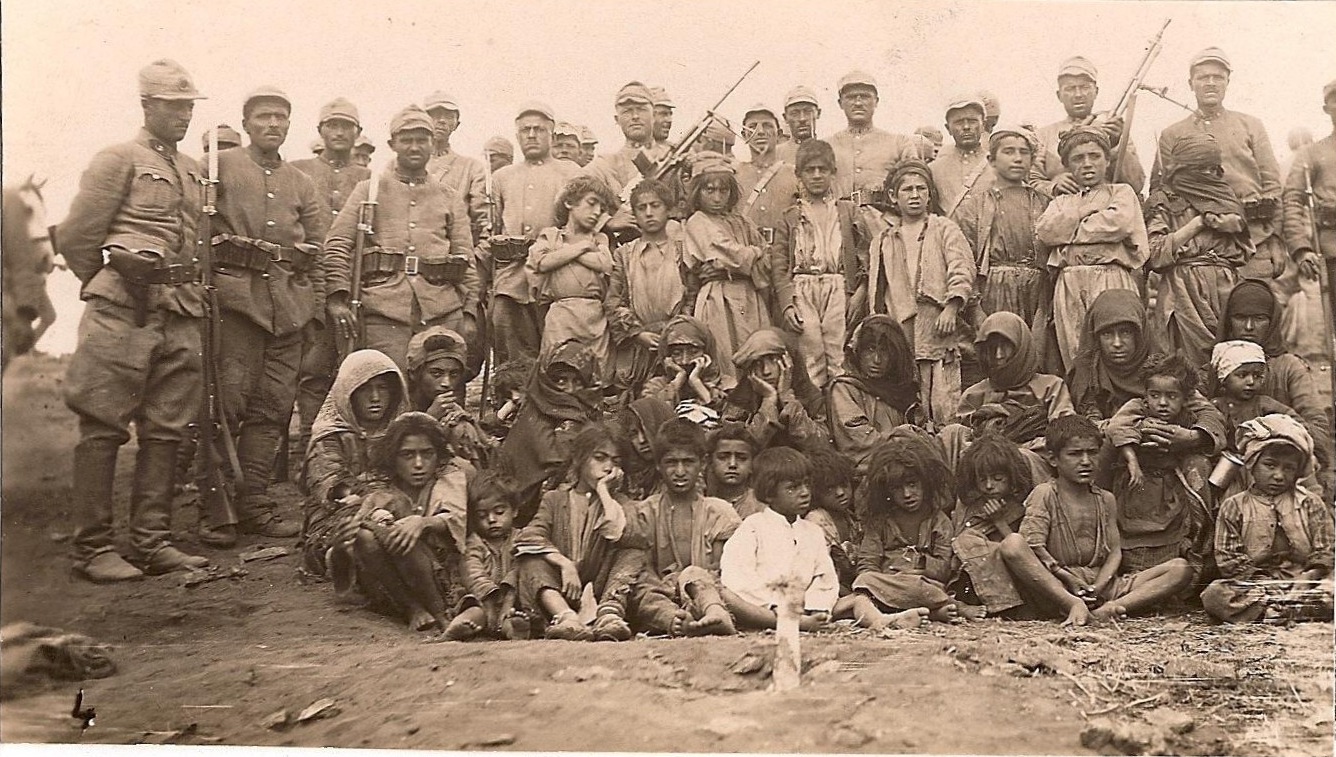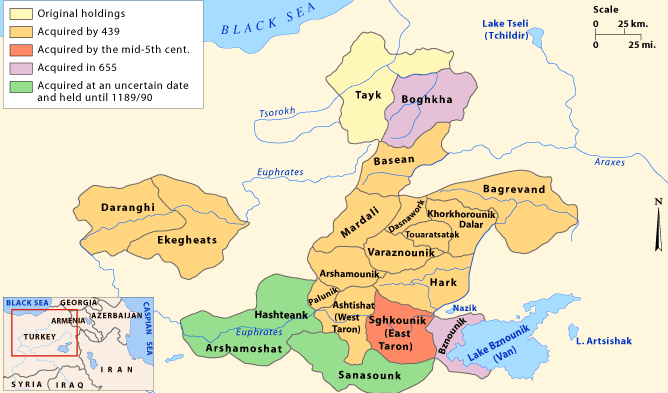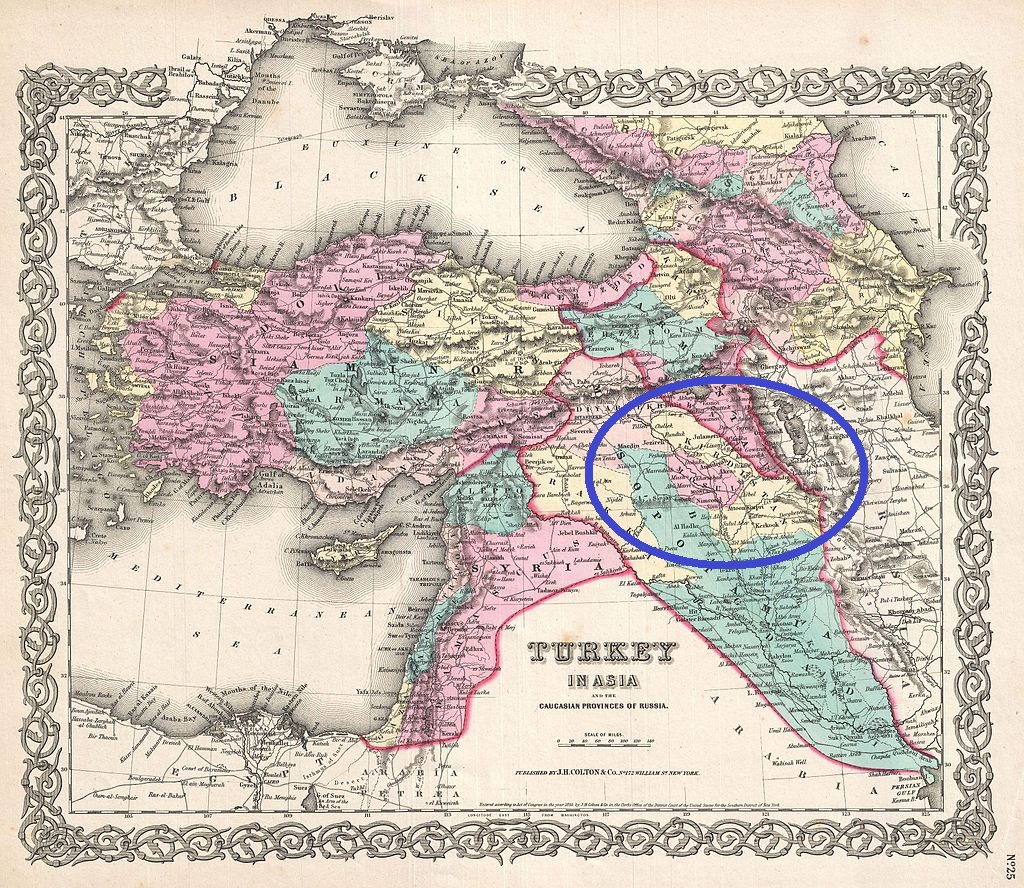|
Dersim
Tunceli (, , ) is a municipality (belde) in Tunceli District and capital of Tunceli Province, Turkey. The city has a Zaza majority. It had a population of 35,161 in 2021. Name During Ottoman times, the settlement was called ''Kalan'' or ''Mameki''. Tunceli, which is a modern name, literally means "bronze fist" in Turkish (''tunç'' meaning "bronze" and ''eli'', in this context, meaning "fist"). It shares the name with the military operation under which the Dersim massacre was conducted. The province of Dersim (or Dêrsim) was renamed Tunceli in 1935, as was the settlement of Kalan, which became the province's administrative center in 1938. Dersim is popularly understood to be composed of the Kurdish/Zazaki words ''der'' ("door") and ''sim'' ("silver"), thus meaning "silver door." Whether the town should be called Dersim or Tunceli has been a cause of political quarrels. In May 2019, the local authorities decided to call it Dersim, while the governor said it was against the law ... [...More Info...] [...Related Items...] OR: [Wikipedia] [Google] [Baidu] |
Dersim Rebellion
The Dersim massacre, also known as Dersim genocide, was carried out by the Turkish military over the course of three operations in the Dersim Province (renamed Tunceli) against Kurds, Kurdish rebels of Kurdish Alevism, Alevi faith, and civilians in 1937 and 1938. Although most Kurds in Dersim remained in their home villages, notes that "Dersim rebellion" is a label applied by some and contested by others thousands were killed and many others were expelled to other parts of Turkey. Twenty tons of “Chloracetophenone, Chloracetophenon, Iprit, Iperit and so on” were ordered and used in the massacre. According to Turkish Army general Osman Pamukoğlu, in the 1990s, the Dersim massacre was carried on the operational order of Mustafa Kemal Atatürk. On 23 November 2011, Turkish prime minister Recep Tayyip Erdoğan apologized for the massacre, describing it as "one of the most tragic events of our near history" adding that, whilst some sought to justify it as a legitimate response to ... [...More Info...] [...Related Items...] OR: [Wikipedia] [Google] [Baidu] |
Tunceli Province
Tunceli Province (), formerly Dersim Province (; ; ), is a province in the Eastern Anatolia Region of Turkey. Its central city is Tunceli. The province has a Kurdish majority. Moreover, it is the only province in Turkey with an Alevi majority. The province has eight municipalities, 366 villages and 1,087 hamlets. History Antiquity This region was known as Ishuva in the 2000s BC. As a result of the struggle of the Ishuva Kingdom, which was established by the Hurrians in the region, with the Hittites, the region came under the rule of the Hittites in the 1600s BC. Then, it came under the domination of the Urartians and formed the westernmost part of the country of Urartu. After that, it was ruled by Medes and the Persian Achaemenid Empire, and after that it was ruled by Alexander the Great, king of Macedon. Ottoman Empire rule Although the presence of Ottoman Empire was beginning to be felt in the region after Mehmed II the Conqueror defeated the Aq Qoyunlu in 1473, ... [...More Info...] [...Related Items...] OR: [Wikipedia] [Google] [Baidu] |
Seyid Riza
Seyid Riza (, 15 November 1937) was an Kurdish Alevism, Alevi Kurdish political leader of Tunceli Province, Dersim, a religious figure and the leader of the Dersim rebellion. Biography Riza was born in Yalmanlar, Ovacık, Lirtik, a village in the Ovacık, Dersim, Ovacık district, as the youngest of four sons of Seyid Ibrahim, leader of the Hesenan (tribe), Hesenan tribe. Seyid Riza succeeded his father as leader after Ibrahim's death in accordance with his will. During the World War I, First World War he initially led the tribe on the side of the Ottoman Empire against the Russian Empire, Russians but eventually defected to the Russian side during their occupation of Eastern Anatolia and the Dersim region. He reportedly did not always comply with the demands placed upon him by the Ottomans, for instance refusing to hand over for deportation Armenians in his area of influence during the Armenian genocide. He also granted protection to the leaders of the Koçgiri rebellion. After ... [...More Info...] [...Related Items...] OR: [Wikipedia] [Google] [Baidu] |
Tunceli
Tunceli (, , ) is a municipality (belde) in Tunceli District and capital of Tunceli Province, Turkey. The city has a Zaza majority. It had a population of 35,161 in 2021. Name During Ottoman times, the settlement was called ''Kalan'' or ''Mameki''. Tunceli, which is a modern name, literally means "bronze fist" in Turkish (''tunç'' meaning "bronze" and ''eli'', in this context, meaning "fist"). It shares the name with the military operation under which the Dersim massacre was conducted. The province of Dersim (or Dêrsim) was renamed Tunceli in 1935, as was the settlement of Kalan, which became the province's administrative center in 1938. Dersim is popularly understood to be composed of the Kurdish/Zazaki words ''der'' ("door") and ''sim'' ("silver"), thus meaning "silver door." Whether the town should be called Dersim or Tunceli has been a cause of political quarrels. In May 2019, the local authorities decided to call it Dersim, while the governor said it was against the l ... [...More Info...] [...Related Items...] OR: [Wikipedia] [Google] [Baidu] |
Zazas
The Zazas (), also known as Kird, Kirmanc, or Dimili, are an Iranian people who speak Zazaki, a language of the Indo-European language family. They mostly live in the Eastern Anatolia and Southeastern Anatolia regions of Turkey. Zazas generally consider themselves Kurds, and are often described as Zaza Kurds by scholars. Etymology and naming The term Dimilî derives from the name of the Dunbulî (also spelled Dumbulî), a Kurdish tribe documented since the 12th century. According to ''Encyclopædia Iranica'' the endonym ''Dimlī'' or ''Dīmla'' was derived from Daylam region in Northern Iran, and appears in Armenian historical records as ''delmik'', ''dlmik'', which was proposed to be derived from Middle Iranian ''*dēlmīk'' meaning Daylamite. Among their neighbors the people are known mainly as Zāzā, which meant “ stutterer” and was used as a pejorative. Hadank and Mckenzie attribute relative abundance of sibilants and affricates in Zaza language to explai ... [...More Info...] [...Related Items...] OR: [Wikipedia] [Google] [Baidu] |
Turkish Kurdistan
Turkish Kurdistan or Northern Kurdistan () is the southeastern part of Turkey where Kurds form the predominant ethnic group. The Kurdish Institute of Paris estimates that there are 20 million Kurds living in Turkey, the majority of them in the southeast. Southeastern Turkey (Northern Kurdistan) is considered to be one of the four parts of Kurdistan, which also includes parts of northern Syria (Western Kurdistan), northern Iraq ( Southern Kurdistan) and northwestern Iran (Eastern Kurdistan). The term Turkish Kurdistan is often used in the context of Kurdish nationalism, which makes it a controversial term among proponents of Turkish nationalism. The term has different meaning depending on context. Geography The Encyclopaedia of Islam delineates the geography of Turkish Kurdistan as following: Nonetheless, it is emphasized that "the imprecise limits of the frontiers of Kurdistan hardly allow an exact appreciation of the area." The region forms the south-eastern edge of Ana ... [...More Info...] [...Related Items...] OR: [Wikipedia] [Google] [Baidu] |
Zaza Language
Zaza (endonym: , , , , , or , ) is a Northwestern Iranian language spoken primarily in eastern Turkey by the Zazas, who are mostly considered as Kurds, and in many cases identify as such. The language is a part of the Zaza–Gorani language group of the northwestern group of the Iranian branch. The glossonym Zaza originated as a pejorative. According to Ethnologue, Zaza is spoken by around 1.48 million people, and the language is considered threatened due to a declining number of speakers, with many shifting to Turkish. Nevins, however, puts the number of Zaza speakers between two and three million. Classification The Zaza language is considered a branch of the Kurdic subgroup within the Northwestern Iranian languages. The varieties of Kurdic do not directly descend from any known Middle Iranian languages, such as Middle Persian or Parthian, or from Old Iranian languages, such as Avestan or Old Persian. Zaza is considered a macrolanguage, consisting of Southern and N ... [...More Info...] [...Related Items...] OR: [Wikipedia] [Google] [Baidu] |
Fatih Mehmet Maçoğlu
Fatih Mehmet Maçoğlu (Also known as 'The Communist Mayor') (born 20 December 1968, Çemberlitaş, Ovacık District) is a Turkish communist politician of Kurdish descent and founder of Socialist Councils Federation (SMF). He was the mayor of Tunceli, representing the Communist Party of Turkey (TKP), from 2019 to 2024. Early life and education He was born in the village of Çemberlitaş in Tunceli Province in December 1968 and attended primary school in Ovacık and health high school in Bingöl. Professional career From 1989 onwards he worked in healthcare. First in Bozkir in Konya and between 1992 and 2007 in Pertek, Tunceli. From 2007 onwards he worked in emergency care in the Tunceli state hospital. He resigned from his work in hospital in order to stand as a mayoral candidate for Ovacik in the local elections of 2014. Political career He was elected mayor of Ovacık in 2014, where he was known for implementing initiatives like free public transport and agric ... [...More Info...] [...Related Items...] OR: [Wikipedia] [Google] [Baidu] |
Turkification
Turkification, Turkization, or Turkicization () describes a shift whereby populations or places receive or adopt Turkic attributes such as culture, language, history, or ethnicity. However, often this term is more narrowly applied to mean specifically Turkish rather than merely Turkic, meaning that it refers more frequently to the Ottoman Empire's policies or the Turkish nationalist policies of the Republic of Turkey toward ethnic minorities in Turkey. As the Turkic states developed and grew, there were many instances of this cultural shift. The earliest instance of Turkification took place in Central Asia, when by the 6th century AD migration of Turkic tribes from Inner Asia caused a language shift among the Iranian peoples of the area. By the 8th century AD, the Turkification of Kashgar was completed by Qarluq Turks, who also Islamization, Islamized the population. The Turkification of Anatolia occurred in the time of the Seljuk Empire and Sultanate of Rum, when Anatolia h ... [...More Info...] [...Related Items...] OR: [Wikipedia] [Google] [Baidu] |
Recep Tayyip Erdoğan
Recep Tayyip Erdoğan (born 26 February 1954) is a Turkish politician who is the 12th and current president of Turkey since 2014. He previously served as the 25th prime minister of Turkey, prime minister from 2003 to 2014 as part of the Justice and Development Party (Turkey), Justice and Development Party (AKP), which he co-founded in 2001. He also served as mayor of Istanbul from 1994 to 1998. Coming from an Islamist background and promoting socially conservative policies, Turkey has experienced increasing authoritarianism, democratic backsliding and suppression of dissent under Erdoğan's rule. Erdoğan was born in Beyoğlu, Istanbul, and studied at the Marmara University, Aksaray Academy of Economic and Commercial Sciences, before working as a consultant and senior manager in the private sector. Becoming active in local politics, he was elected Welfare Party's Beyoğlu district chair in 1984 and Istanbul chair in 1985. Following the 1994 Istanbul mayoral election, 1994 lo ... [...More Info...] [...Related Items...] OR: [Wikipedia] [Google] [Baidu] |
Kurds
Kurds (), or the Kurdish people, are an Iranian peoples, Iranic ethnic group from West Asia. They are indigenous to Kurdistan, which is a geographic region spanning southeastern Turkey, northwestern Iran, northern Iraq, and northeastern Syria. Consisting of 30–45 million people, the global Kurdish population is largely concentrated in Kurdistan, but significant communities of the Kurdish diaspora exist in parts of West Asia beyond Kurdistan and in parts of Europe, most notably including: Turkey's Central Anatolian Kurds, as well as Kurds in Istanbul, Istanbul Kurds; Iran's Khorasani Kurds; the Caucasian Kurds, primarily in Kurds in Azerbaijan, Azerbaijan and Kurds in Armenia, Armenia; and the Kurdish populations in various European countries, namely Kurds in Germany, Germany, Kurds in France, France, Kurds in Sweden, Sweden, and the Kurds in the Netherlands, Netherlands. The Kurdish language, Kurdish languages and the Zaza–Gorani languages, both of which belong to the Wes ... [...More Info...] [...Related Items...] OR: [Wikipedia] [Google] [Baidu] |
Communist Party Of Turkey (modern)
The Communist Party of Turkey (, TKP) is a communist party in Turkey. It was founded as the Socialist Power Party (, SİP) on 16 August 1993. In 2001, the party changed its name to the Communist Party of Turkey (TKP). History The TKP that was founded in 2001 has its roots in 1978. In that year, a Leninist faction called Sosyalist İktidar (Socialist Power) voiced concerns about the main political line of the Workers' Party of Turkey (''Türkiye İşçi Partisi'' or TİP). The group claimed that the party's activities were not consistent with the programme of a revolutionary party, which should be defending socialist revolution. They also criticized the party's class collaborationism with the bourgeoisie. The group, headed by Yalçın Küçük and Metin Çulhaoğlu, argued that due to the oppressive terror atmosphere in the country the party gave in to unification policy within the left wing, thus losing the perspective of coming to power. The group printed the ''Sosyalist İ ... [...More Info...] [...Related Items...] OR: [Wikipedia] [Google] [Baidu] |









